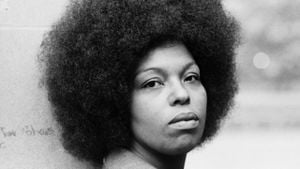Al Pacino, one of the definitive legends of Hollywood, has captivated audiences for decades with his dynamic performances and memorable characters. With over fifty films to his name, Pacino's career has been marked by significant milestones, including iconic roles like Michael Corleone in The Godfather and Tony Montana in Scarface. His filmography not only showcases his remarkable talent but also reflects the evolution of cinema itself, especially during the transformative periods of the 1970s and 1980s.
The narrative of Pacino's career began with The Godfather (1972), directed by Francis Ford Coppola, which catapulted him to fame. His portrayal of Michael Corleone, the reluctant heir to a mafia dynasty, was both nuanced and powerful, earning him widespread acclaim and establishing him as one of Hollywood's leading men. The Godfather Part II (1974) followed, and many fans and critics regard it as even more complex than its predecessor, deepening the exploration of moral ambiguity and family loyalty.
One cannot talk about Pacino's illustrious career without mentioning other critically acclaimed films such as Scarface (1983), where he delivered one of his most explosive performances as the ambitious drug lord Tony Montana. This role encapsulated not just the era of excess but also solidified Pacino's status as a cultural icon, with his unforgettable lines and portrayal of the rise and fall of Montana hitting home with audiences globally.
Another significant film, Heat (1995), showcased Pacino's talents opposing fellow acting titan Robert De Niro. Their dynamic onscreen presence captured the essence of the crime thriller genre, making it one of the most memorable films of the 1990s. The intense confrontation between their characters added layers to the narrative and is often cited as one of the most iconic moments in cinema.
Despite his successes, Pacino has often reflected on the roles he turned down, including the famed character of Han Solo from Star Wars. He remarked, "There is another one of my mistakes, there is a museum of mistakes, all the movies I rejected." This sentiment reveals not only his humility but also the unpredictable nature of Hollywood, where potentially groundbreaking opportunities can slip through even the most seasoned actors' fingers. Alongside Han Solo, he turned down parts in Kramer Vs. Kramer, Pretty Woman, and Die Hard, highlighting how the industry's changing tides can influence career trajectories.
One of Pacino's standout performances, and perhaps one of the most underrated, is his role as Frank Serpico, the whistleblowing NYPD officer, in the film Serpico (1973). This gripping drama portrayed not just the fight against police corruption but also Pacino’s dedication to embodying real-life characters with intense realism. The film was based on true events when Serpico exposed rampant corruption within the NYPD, earning him great personal risk and altering his life forever.
Pacino's portrayal of Serpico was met with widespread acclaim; even Serpico himself noted, "Al Pacino played me [Frank Serpico]better than I played myself." This speaks volumes to Pacino's commitment to his craft and his ability to connect with the essence of his characters. His performance drew the audience's empathy, showcasing vulnerability and tenacity—traits often synonymous with his roles.
Looking back at Pacino's career, it’s clear he has navigated the fickle waters of Hollywood with both perseverance and adaptability. From thrilling crime dramas to heartfelt character studies, each role adds to his legacy and continues to resonate with audiences of all ages. His recent endeavors, including The Irishman (2019) directed by Martin Scorsese, demonstrate his willingness to explore new narratives and collaborate with diverse talents, ensuring his relevance even as the film industry evolves.
Throughout his career, Pacino has faced both acclaim and criticism, yet the consistency of his craft speaks for itself. With performances rooted deeply in character and emotion, he remains not just an actor but a cultural beacon, inspiring generations. The cinematic world is undoubtedly grateful for the roles he has played, his charisma, and the indelible mark he has left on film history.
To summarize, Al Pacino’s contributions to cinema go beyond mere performances; they reflect the struggles and triumphs of his characters, each leaving audiences with lasting impressions. Whether as the stoic Michael Corleone or the desperate Frank Serpico, his ability to transcend the screen continues to earn him admiration and respect. His career, rich with complexity, serves as both inspiration and testimony to the art of storytelling through film.



